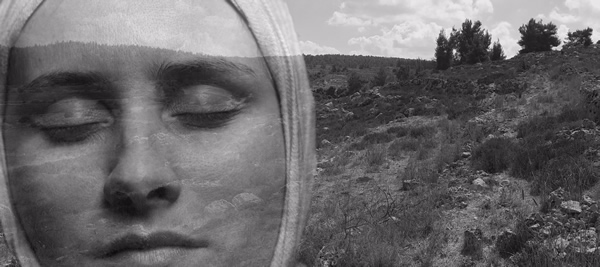Parashat Toldot
Genesis 25:19 – 28:9
Tucked in between episodes in the drama of conflict between Isaac and Rebecca’s two sons, Esau and Jacob, are a couple of stories about the parents, themselves. One story is very similar to stories we have heard about Isaac’s parents, who had to leave the land of Israel in times of famine. Indeed, the Torah begins the story by saying, “And there was a famine in the land, besides the original famine in the time of Abraham.” (Gen. 26:1)
Isaac and Rebecca decide that they, too, are forced to leave the country. Apparently they intend to reach Egypt, as Abraham and Sarah had once done. They begin their travels, but God stops them in the Philistine city of Gerar, a place considered to be part of the land of Canaan. “And the Eternal appeared to him (- Isaac) and said: ‘Do not go down to Egypt. Dwell in the land that I will tell you. Sojourn in this land and I will be with you and bless you. For I will give all these lands to you and your children, and I will keep My covenant that I swore to your father, Abraham.’” (vv. 2 – 3)
Isaac is told not to leave the Promised Land. Indeed, he is the only Patriarch who does not endure exile from the land. But let us notice the way that God describes the land that Isaac must not leave. God eventually calls Canaan (- later to be called the Land of Israel) “this land,” for Isaac is presently living in the land. So it is a bit strange that, right before that, in God’s initial call to Isaac, God does not simply say, “Don’t go to Egypt, stay in this land.” Rather, God says “dwell in the land that I will tell you.” It sounds like God is being vague about what land Isaac should remain in. But there is nothing vague about identifying this land – it is the very land in which Isaac is living already!
If we have been reading the stories that preceded this one, we will immediately hear, in God’s words to Isaac, the echo of the very first call that God issued to Isaac’s father, Abraham. God said, “Go out of your homeland … and go to a land that I will show you.” (Gen. 12:1) Of course in the first instance such a phrase makes sense. Abraham is leaving for parts unknown. Apparently, God is promising to clarify things later, in the future.
But perhaps there is another meaning to this phrase. Perhaps this echo is precisely what God wished for Isaac to hear. God is now explaining to Isaac, that although Isaac already dwells in the land promised to Abraham, to Isaac, and to his children, there is something essential about this land that is not graspable in geographic terms. No matter where a person is, whether in Israel or far, far away, and no matter when Israel is mentioned, in the past, or now, or in the future, Israel is not simply the dirt of a particular location. Rather, Israel is, from the very first and then, perpetually, a land of as yet unknown potential. It is a place that is perpetually open to what God will show us and what God will tell us. This is a crucial part of its very identity. God tells Isaac that he must stay in this land precisely because it is a land open to God’s direction, open to the unknown. Isaac is forbidden to relinquish the belief in that future. And so it is for all of us. If we do not grasp that Israel is a place meant to unfold anew in response to God’s voice, if we think that Israel is already defined and framed by what has been said before, we have, in effect, left Israel. The Promised Land is, more truly, the Land of Unfolding Promise.
Shabbat Shalom
Rabbi David Greenstein
![]()
Subscribe to Rabbi Greenstein’s weekly d’var Torah
images: “Vineyards @Israel National Trail” © Yair Aronshtam & “Juliet, eyes closed, for Yoshio” © Jay DeFehr altered and used with permission via Creative Commons License
- Toby Stein: In Memoriam - Thu, Feb 8, 2024
- Faithfulness and Hope: Parashat Sh’lach - Thu, Jun 23, 2022
- Past Their Prime: Parashat B’ha`a lot’kha - Thu, Jun 16, 2022

